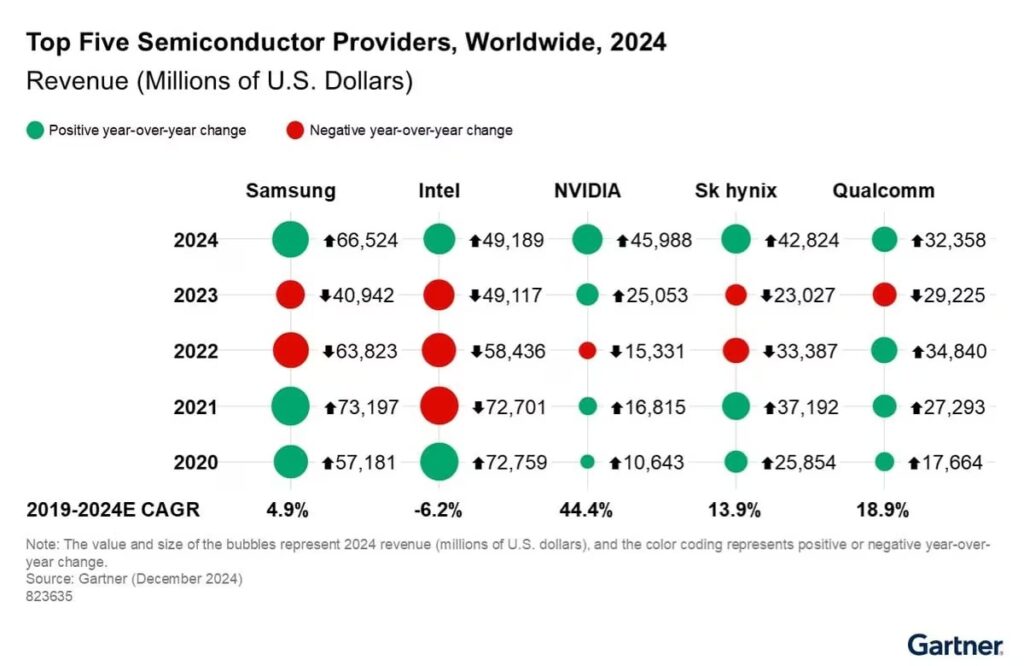Samsung Electronics has reclaimed its position as the world’s leading semiconductor supplier in 2024, surpassing Intel, according to market research firm Gartner, which reported on January 26. This achievement marks a significant comeback for Samsung after facing two years of declining profitability in DRAM and NAND flash products.
A Recovery in the Semiconductor Market
Samsung’s recovery has been fueled by a strong rebound in memory chip sales, which saw significant growth last year following two consecutive years of contraction. Gartner estimates that Samsung closed the year with revenues of $66.5 billion, representing a 62.5% increase from the previous year.
Meanwhile, SK Hynix, the second-largest memory chip manufacturer, climbed to fourth place in the global ranking thanks to its leadership in the high bandwidth memory (HBM) market, a crucial component in generative artificial intelligence systems. This segment has experienced accelerated growth due to the rising global demand for advanced AI.
Global Figures and Trends
Gartner’s report estimates that global semiconductor sales reached $626 billion in 2024, an increase of 18.1% compared to $530 billion in 2023. Additionally, the top 25 semiconductor suppliers collectively increased their market share to 77.2%, compared to 75.3% the previous year.

However, the growth hasn’t been uniform across the industry. While sales of high-performance chips, such as HBM, surged due to the AI boom, the demand for general-purpose chips declined, reflecting a cooling off in other areas of the semiconductor market.
TSMC: The Absent Giant in the Ranking
Although Samsung tops the ranking, Gartner’s analysis does not include TSMC, the world’s largest contract chip manufacturer. Based in Taiwan, TSMC has established itself as a key player in advanced semiconductor manufacturing, but it does not appear on the list as it does not operate as a direct supplier of finished products.
Factors Behind Samsung’s Success
Samsung’s strong recovery is largely attributed to the rising demand for memory chips used in servers, mobile devices, and artificial intelligence applications. According to Gartner, sales of Samsung’s memory chips grew at a compound annual growth rate of 4.9% over the past five years, highlighting its ability to adapt to market challenges.
“Revenue from memory chips, which had experienced a decline for two consecutive years, rebounded significantly in 2024,” Gartner noted.
Outlook for 2025
With the rise of artificial intelligence and the expansion of cloud computing, demand for high-performance chips is expected to continue growing. Samsung and other industry leaders, such as SK Hynix and TSMC, are well positioned to capitalize on these trends, while general-purpose chip manufacturers face a more uncertain landscape.
Samsung’s return to leadership in the semiconductor industry underscores its resilience and ability to innovate in an increasingly competitive and strategically important market for the global economy.
Source: Gartner and Chosun
